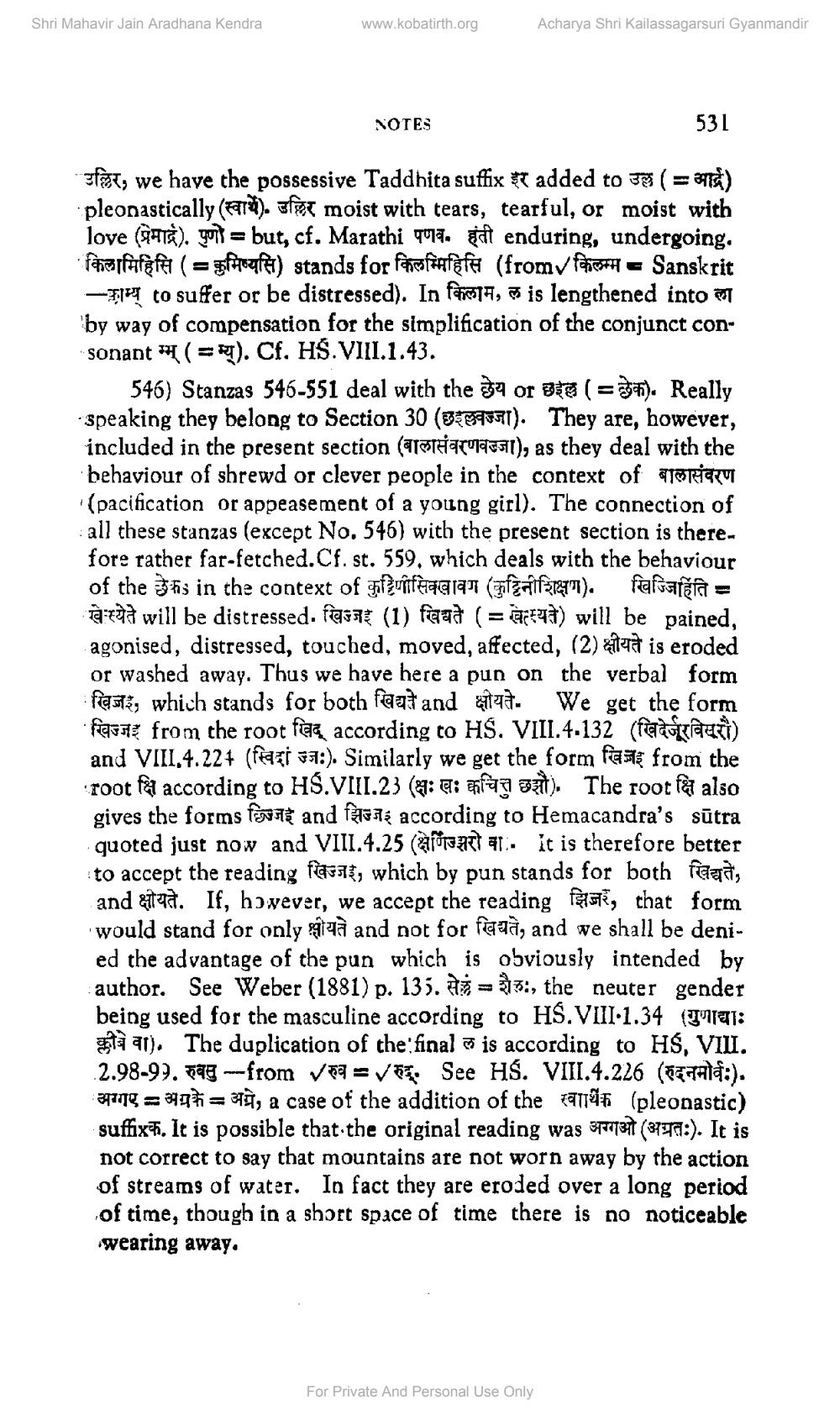________________
Shri Mahavir Jain Aradhana Kendra
www.kobatirth.org
Acharya Shri Kailassagarsuri Gyanmandir
NOTES
531
sfat, we have the possessive Taddhita suffix & added to 35 ( = 845) pleonastically (Fard). Efet moist with tears, tearful, or moist with love (941). yont = but, cf. Marathi 1917. gat enduring, undergoing. fahafalgte ( = $fift) stands for Fenetrargle (from foot = Sanskrit -काम्य् to suffer or be distressed). In किलाम, ल is lengthened into ला by way of compensation for the simplification of the conjunct consonant ( = ). Cf. HS.VIII.1.43.
546) Stanzas 546-551 deal with the 39 or 383 ( = 3). Really -speaking they belong to Section 30 (3769531). They are, however,
included in the present section (OTATUESI), as they deal with the behaviour of shrewd or clever people in the context of Tora u (pacification or appeasement of a young girl). The connection of all these stanzas (except No. 546) with the present section is therefore rather far-fetched.Cf. st. 559. which deals with the behaviour of the is in the context of Foruitgaatar (feat) faltarča = henta will be distressed. faszt (1) faad ( = 59T) will be pained, agonised, distressed, touched, moved, affected, (2) izat is eroded or washed away. Thus we have here a pun on the verbal form खिजई, which stands for both खिद्यते and क्षीयते- We get the form fant from the root far according to HS. VIII.4.132 (redsgraati) and VIII,4.224 (reati a:). Similarly we get the form fate from the root fa according to HS.VIII.23 (9: : fag szit). The root fa also gives the forms fennt and the according to Hemacandra's sūtra quoted just now and VIII.4.25 (fra att al. It is therefore better to accept the reading खिज्जई, which by pun stands for both खिद्यते, and ed. If, hɔwever, we accept the reading site, that form would stand for only gua and not for read, and we shall be denied the advantage of the pun which is obviously intended by author. See Weber (1881) p. 135. 3 = 35., the neuter gender being used for the masculine according to HŚ.VIII.1.34 (119: gitaar). The duplication of the final is according to HS, VIII. .2.98-99. 79€ --from 59 = V6 See HŚ. VIII.4.226 (Tala:). अग्गए = अग्रके = अग्रे, a case of the addition of the स्वार्थक (pleonastic) suffix. It is possible that the original reading was 377737 (347a:). It is not correct to say that mountains are not worn away by the action of streams of water. In fact they are eroded over a long period of time, though in a short space of time there is no noticeable wearing away.
For Private And Personal Use Only




